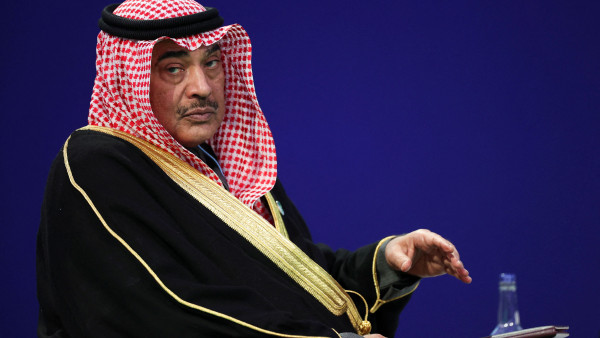Kuwait’s ruling emir on Saturday named the small nation’s new crown prince, nearly six months after he took the throne.
Sheikh Sabah Khalid Al Sabah will become next in line to the throne, the state-run KUNA news agency reported.
Sheikh Sabah, 71, previously served as prime minister and as foreign minister in the country.
The announcement offered no other details or comments from Kuwait’s ruling emir, Sheikh Meshal Al Ahmad Al Jaber.
Sheikh Meshal, 83, recently dissolved parliament for as many as four years amid the widespread political dysfunction that’s gripped Kuwait.
The political upheaval has sparked fears that a major curtailing of individual freedoms is underway.
Sheikh Meshal insists that considerable reforms are needed to root out corruption and increase efficiency, amid a period of political and economic stagnation in Kuwait, as other Gulf states move on with ambitious diversification programmes.
Domestic political disputes include changes to the welfare system, and the impasse has prevented the sheikhdom from taking on debt. That has left it with little in its coffers to pay bloated public sector salaries despite generating immense wealth from its oil reserves.
Kuwait is ruled by an emir who appoints a cabinet, traditionally dominated by members of the ruling family, that decides key political decisions.
Yet its 50-seat National Assembly, elected by the public, wields considerable influence compared to other Gulf legislatures with MPs able to block the passage of legislature and grill ministers.
MPs are generally aligned to the government, independent, or in opposition with considerable clashes between the latter parliamentary faction and ministers in recent years.
Kuwait, a nation with around 4.2 million people that is slightly smaller than the US state of New Jersey, has the world’s sixth-largest known oil reserves.
It has been a staunch US ally since the 1991 Gulf War expelled occupying Iraqi forces of Saddam Hussein. Kuwait hosts about 13,500 American military personnel as well as the forward headquarters of the US Army in the Middle East.


